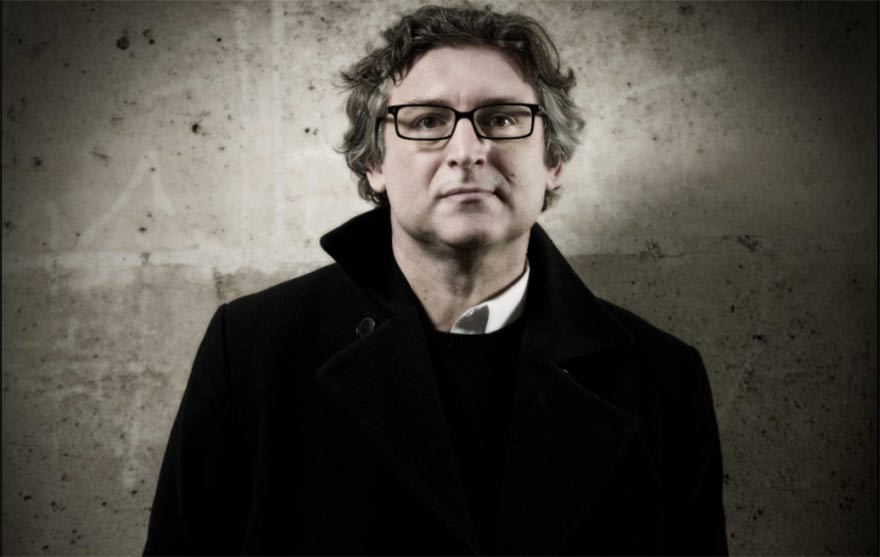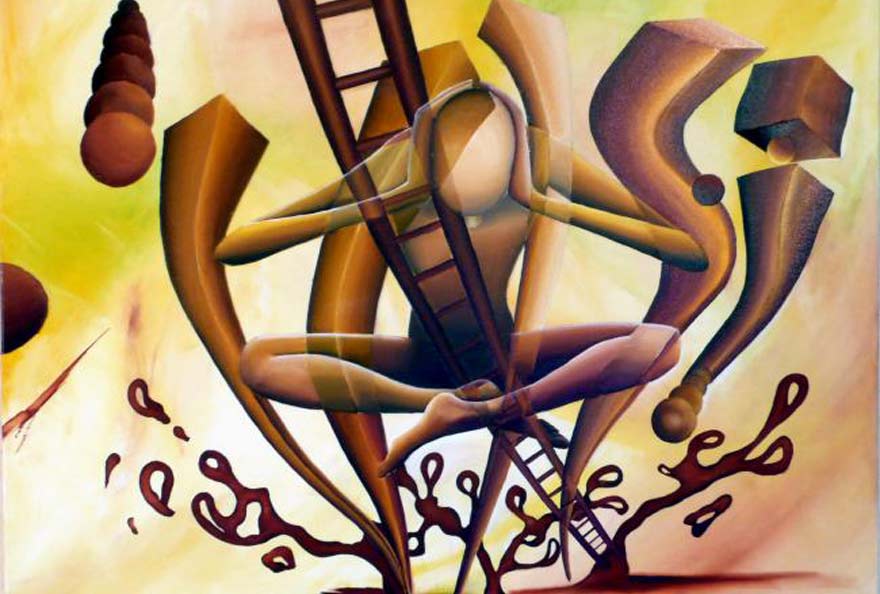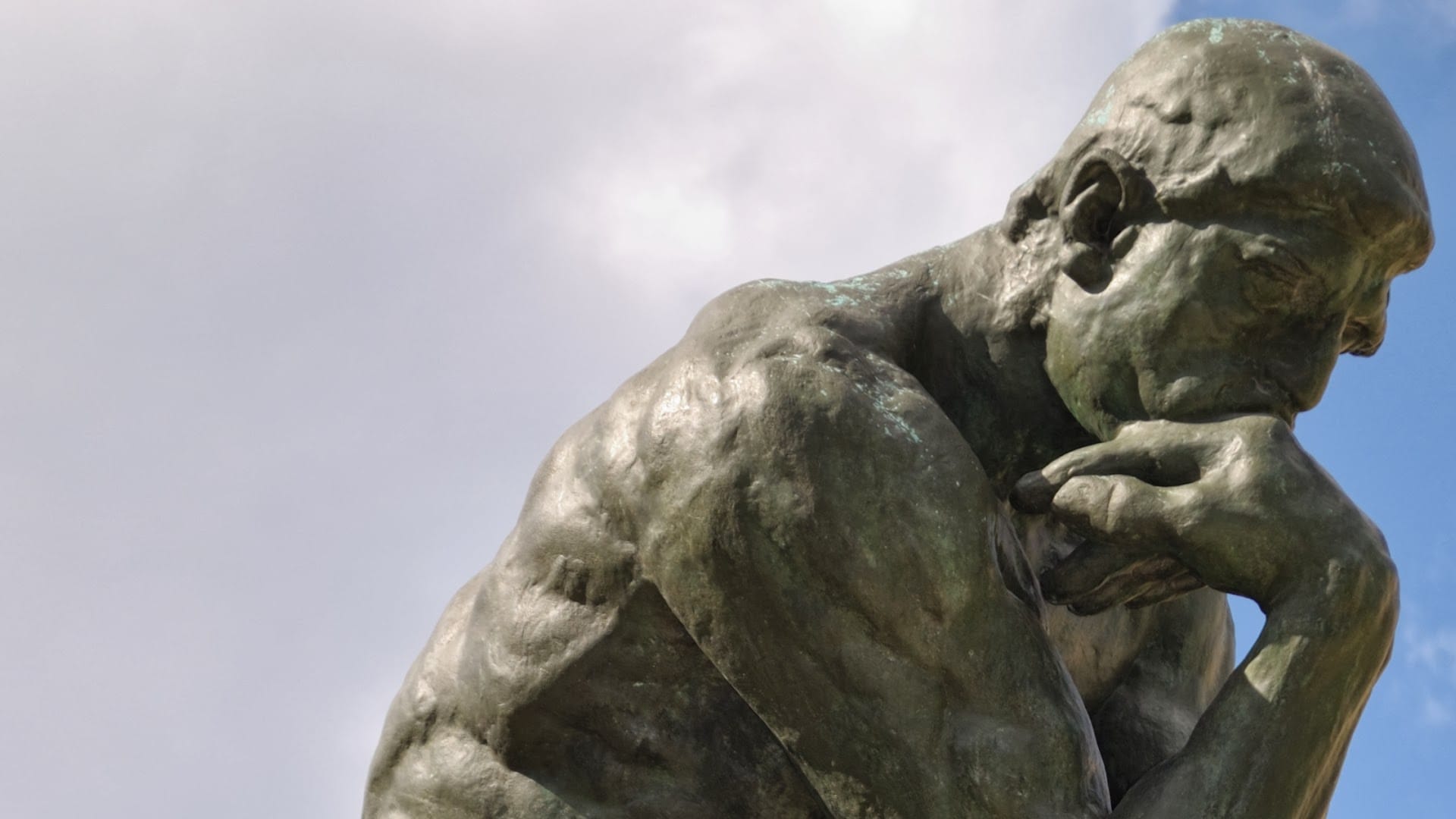The words of the philosopher Michel Onfray at the Point this Monday, just after the November 13th massacre, sadly shocked us. Worse, they seemed out of step with the events we were experiencing. As if one of the most eminent French intellectuals had missed something important and left us in the middle of the ford, taken aback. The history of thought has seen others of these great figures misled or blinded by the inertia of their ideas. Who did not understand that the world was changing before their eyes. This is what is happening today and Onfray is blind and deaf. His mistake is serious, historical perhaps; it hurts us. This is why we are reprinting for the readers of UP', without taking away a word, this text by Baptiste Rossi published today in the Rule of the Game :
« Qhen Michel Onfray finds excuses for the attacks in Paris and proposes a truce with Daech: Le suicide moral d'un philosophe.
In such days, nothing is less pleasant than having to write in diatribes, and scramble with words. Certainly, there are more urgent things to do or think about than to answer Michel Onfray's interview in Le Point (last Monday's special issue). Nevertheless, when I read these words, I had no doubt that others than myself would take on the task of answering him. Probably, since everyone's heart or mind was elsewhere, no one else showed up, which would have happened under normal circumstances. The problem is that in the silence, Onfray is comforted. His tone of satisfied satrape is not denied; his (understandable) willingness to be interesting is not gently scolded; his incredible propensity to say anything, yelping in advance to the frightened cries of the social-democratic editorialists, is not rewarded. There is indeed, sadly, no scandal. Like a child blowing up a balloon at a birthday party, when everyone else is preoccupied with something else, Michel Onfray has, these days, the polemic that is causing a stir. And since times are difficult for everyone, there is no reason why a silly provocation should not be greeted with the necessary rebuttal. It's always depressing to see an artist go belly-up, a cabaret actor not being applauded, when we have dinner on Saturday night with cotillions and a front stage for him to perform between our appetites. So much childishness, so much condescension and so much cookery cannot be spent in vain. Let us imagine the effort, the hope, the merit of such a polemist. And then what will Onfray, depraved, do next time? Maybe nothing, if his disappointment exceeds his ego for once. But it is not said that Daech will take away the pleasure of reading absurd things from us too! Michel Onfray, so here we are.
Thus, Michel Onfray is questioned by Le Point about the Paris bombings. Let's point out, in passing, that this weekly, which is on the verge of promising austerity arrests and a firing squad to whom would be a passive, foolish, well-meaning accomplice of Islamism, opens wide the pages to someone who, because if you claim the opposite you have understood nothing, proposes to sign a pact with Daech, "a truce (that) could be signed between the Islamic state and France".
But why on earth should France sign a truce with Daech? Well, because France is responsible for these attacks. Going back to the origins of the movement, Onfray argues that it is the war in Iraq - not 9/11, not the rise of Islamism in the Middle East over the last thirty, fifty years, not Assad's strategy, not Saddam's role in the ethnicization of the Iraqi people under his reign -, no, the war in Iraq, therefore, that is the cause of our ills and our deaths: "The situation in which we find ourselves proceeds from a long chain of causalities that it is up to the philosopher to describe. The terrorist act as such is the last link in this chain. "After having legitimised their war aims, responding to a destabilisation of the Middle East (by attacking in France, a well-known land of anti-Iraqi warmongering), Onfray then endeavours to legitimise the terrorists' means: "the politically correct invitation (to) turn them into barbarians... while they do with the grinder and the pneumatic drill what the West has done with stealthy planes (...).) calling them terrorists (while they certainly kill innocent victims with Kalashnikovs or knives, but the West does the same on a larger scale ...). »
What can I say? It's always sad to witness the moral suicide of a philosopher. The root causes of the violence in the Middle East are complex, its remedies fearsome and justiciable with a subtle and distant analysis. But when a philosopher undertakes to justify deaths, it is an act of forgery. The return of the sub-Hegelian dialectic, that "long chain of causalities" uncovered by the great mind, which makes massacres and barbarism intelligible and ultimately excusable, is a trap of intelligence. To want to rise above, to know better than anyone else how to distinguish between necessary misfortunes and tragedies that can be reduced to irreparable manifestations of the spirit of History, one is no longer intelligent, one is monstrous. Confusing murderous nihilism with political activism is a mistake that was thought to be buried, reserved for other times. A truce with Daech? On what terms? Give them money, give them prisoner quotas? It's Ubu at Clausewitz's. Lack of discernment becomes criminal. If you can't be Chomsky or Hegel, you become Quisling. It's unforgivable for any intellectual. It's eminently sad in the case of Michel Onfray.
Sad, when for twenty years one claimed to be precisely the man against the systems, the dismantler of panglossies and providences, the irreducible spirit full of light in the face of the advocates of the contemporary order and its justifications. Sad, when for twenty or thirty years one has pretended to follow in the footsteps of a master such as Albert Camus. Camus, read by Onfray without nuance but with flame, in opposition to Sartre, summed up in a metallic, condescending voice, ready for all the pirouettes of dialectic to justify political murders. This voice, without benevolence, without compassion for the victims, the voice of the historical dialectic, imbued and intoxicated with its own intelligence, which knows how to place itself high, in the heights of History, to make a victim an executioner or an accomplice, which knows, smarter than everyone else, that attacks are echoes of tyrannies, that the dead do not count, or equalize. This voice of dialectic was the one that Onfray lent to Sartre, it was the voice of the orthodox Marxists, yet it is the one with which he speaks today, by a lamentable reversal of philosophical evolutions. Sad, when, like Onfray, one wrote a whole plea to a Camus, the Camus of the Just, who discussed political assassination with his religion of man and his terror of Terrors, the Camus of the Mother preferred to justice, the Camus of the Revolted Man who knew, him, how to distinguish fundamentalism from just revolt (and revolt, in the attacks in Paris, where is it?). Sad, when Onfray did not cease to mock, he, the hedonistic humanist, saw clearly in the world of ideologies, Sartre who wrote too famously in his preface to Frantz Fanon: "To kill a European is to kill two birds with one stone, to suppress at the same time an oppressor and an oppressed. A philosopher, who with "certainly" (abundantly used by Onfray) tries to recuperate the murderous gesture in a necessity that is beyond him. Sartre's words, Onfray could write them, he went from a skepticism to a certicism. Already at that time, the oppressed could not be assassins. There were, of course, victims, but if you knew ... Not a word of pain for the dead, seen as puppets of the West, servants collecting their dues, an unspeakable glorification of Daech as the anti-colonialists of the 50s would have refused to undertake. The return of the dialectic full of intelligence and words of apology is indeed an oversight. Intellectual forgery in a devastated country, where one of its most read philosophers, intoxicated by his sagacity, takes for insight what is only cooking. A personal fare for a writer who wants to be like Camus, a just man gnawed by doubt, tormented by scruples, and who with a talent (certainly, certainly less than that of Onfray) has never dared to justify, "to place in a chain of causality", to dress a terrorist in the uniform of an agent of necessity. It is a sad spectacle to see, through the confinement of pride, childish desire for provocation, adolescent fascination with disorder, Onfray, the man who demolished idols, patiently repainting the statue of Hegel where Daech becomes the midwife of the contradictions of the Middle East under the tyrannical control of the West. Onfray prefers justice - or what he sees of it - to the dead of the Bataclan, forgetting Camus' first gesture in the face of the Marxism of the "Modern Times" or the supposts of terror, seeing the faces of the dead, disempowering them from the systems, refusing all speeches and excuses. Camus, who would have mourned all the dead, and suffered each of the victims of a much more inextricable conflict. Camus, the obligatory reference, since Onfray explicitly compares Daech to the FLN, which is an insult, by the way, to Algeria, to the Muslims, the first victims of the Islamic State. Onfray's interview is a free spirit that speaks, strangely, in that grey voice once reserved for perceptive gulaguists, intellectuals acting as opticians ("Sure, it's terrible from here, all these deaths, but consider it from the point of view of... back off... ah yes, there you go, isn't it clearer, less awful? "), to the Marxists who, like high mountain guides, knew how to find lookouts from which human horror is more bearable, if not justifiable. A forfeiture, therefore, a moral, philosophical forfeiture, a suicide, a plunge into the absurd which, perhaps, for an alleged Camusian, may, who knows, make sense.
Onfray's words haven't, for the moment, got the publicity they deserve. Maybe it's for the best. His only glory, his destiny perhaps, is to become an organic intellectual of Daech, since he is taken up, on the web, by the whole Islamic sphere. Vanity does not excuse everything. The joyful joy of rushing into the stretchers could compromise the philosophical duty to tell the truth. It is possible not to publish five columns in Le Point, just one week in the history of the world, without dying of asphyxiation. For that, too, is what philosophy is all about, refusing false "causalities", not, for the joy of raucous demonstrations, writing off the dead. To be indignant at the dead, at the madness of men, while being able, of course, to refuse war, or to propose other paths to peace, but under no circumstances to act as if everyone had his reasons. Of course everyone can find reasons to kill. This is degree zero thinking. Waving your index finger in the air in the columns of beautiful newspapers saying "certainly! certainly! " to crush reality in its systems or its little scribbles of equivalence, it's useless except to please oneself. A philosopher is not a referee who, collecting obituaries and in memoriam, making additions or subtractions, decides which side is right or wrong. The capacity of philosophy is precisely to make those who believe they are right, give them enough reasons to kill. This is certainly less spectacular, no doubt, less salesmanlike, but it is the task, which others, with Camus in mind, had assigned to him. One has to be very nostalgic for one's political youth to confuse militants with counterfeiters of ideology, fighters with nihilists, to dress pure madness in revolt. And senile Marxism can become incredible blindness. So, with an infinite sadness, which we could have done without, in these atrocious days, we should say Farewell Onfray. Reread the interview, where in passing, to his teenage joy of being on first-name terms with the abyss, the philosopher discreetly rehabilitates Marine Le Pen, by this pirouette of the worst cherished by childish intelligences, Le Pen who is not, according to him, the true extreme right. Michel Onfray's position, between a pacifism without glory, a dialectic without heart, and a vow of order without equivocation, is moreover contradictory, but who cares? Here, one will simply say, calmly, with Onfray's thundering words, with those words of superiority that veil his humanity, his intelligence, and perhaps, his duty, something else. To conclude, we will say: Bye, moron. Bye, moron, we've been immune for a long time, since our reading of Camus, against all the impresarios of crime and the hucksters of History. Bye, moron, the philosophers who lock the victims in the braid of events, refusing their singularity and the monstrosity of the murders, we have long since finished. Applying Kojève to Daech may sound clever, but it's a lie, an infamy, and intelligence can't be measured by the coldness of the heart. Ciao, you idiot, it hurts that it was such circumstances that made the masks fall off. »
Baptiste Rossi
This article was originally published in the Rule of the Game












